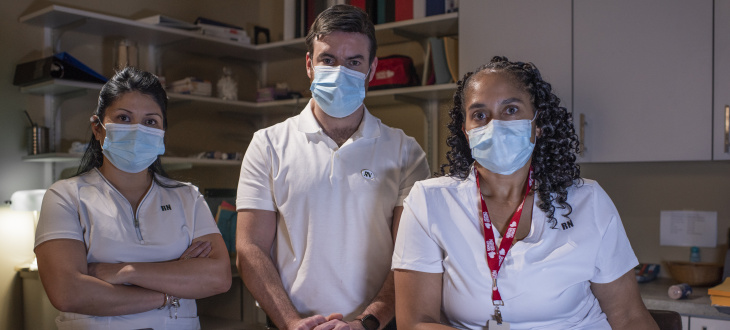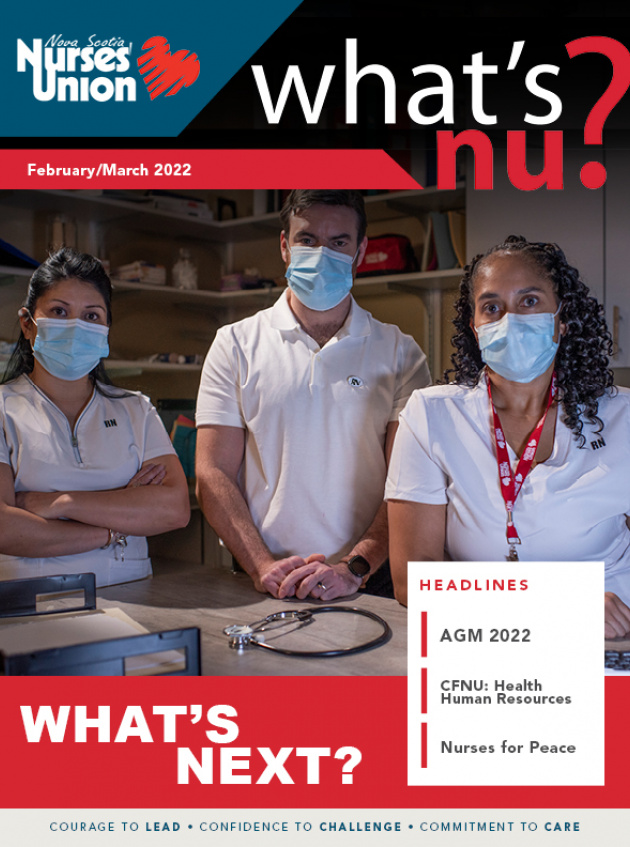No doubt, people are welcoming the loosening of restrictions on gathering limits, travel, masking and other measures put in place to ensure the safety and well being of others, and ourselves, during the pandemic. While these and other restrictions are lifted, what can we expect next?
As provinces lift COVID-19 pandemic restraints, many experts expect stress and anxiety to run high among those who are nervous of letting their guard down. Health care workers are among those who fear spikes in transmission, further hospitalizations and significant impacts on their work and personal lives once public health directives change course.
On the surface, we’ll have to get used to seeing people smile or grimace, depending on the situation. The unmasked will feel confident in their decision, as should those who continue the practice. Based on the path chosen, some worry that they will be scrutinized for their actions – masked or unmasked.
As we enter this phase, the closest thing to normal since early March of 2020, it’s only natural for people to worry and wonder. Afterall, COVID is not going away anytime soon.
Will Nova Scotians and health care workers be offered additional booster shots and ample PPE now that we must “learn to live” with COVID? As things stand, vaccines are still heralded as our strongest defence against the virus.
Proof of vaccination in some jurisdictions and public places was lifted in February, marking the end of that requirement. While that may encourage more to venture out, the decision to lift proof of vaccination in restaurants and other venues has industry representatives concerned that some patrons may now choose to stay away – at least for the time being.
It is understandable why many are conflicted by the shift in attitude and the lifting of public health recommendations – our case counts, hospitalizations and deaths related to COVID-19 have never been higher in this province. Yet, because our vaccination rate is high in Nova Scotia, and the booster uptake is ongoing, our confidence in shifting to the last phases of prevention is also high.
Health care workers, like no others, have seen the devastation and disruption imposed by COVID-19. Nurses have lived with uncertainty and upheaval. The absence of safeguards will no doubt generate underlying fear during this switch in mindset. The new “do at your own risk” approach could have significant implications for the healthcare system if we continue to see new variants and increased spread of the disease.
Our vulnerable populations have great trepidation and may retreat into solitude – a very tragic possibility. The anxiety and mental health of our friends, neighbours, family members, co-workers and ourselves may further be put to the test during this transition. That’s why asking, “What’s next?” is fair and reasonable. There are many unknowns.
Re-opening was something we all wanted, prayed and wished for. It was associated with the end of a dark period, offering normalcy where there had been none for many months. Learning to live with COVID does not mean that the threat is gone, leaving less cause for celebration.
In the meantime, it’s hard to predict what will happen next. However, nurses know how to respond to the situation. Nurses are well versed in reacting and responding to the worst (hopefully) this sickness has to offer.
Regardless of how things evolve, nurses must continue to be supported, properly outfitted to prevent illness, and given the tools to combat whatever is in store so they’re ready for what’s next.

 Login Members Only
Login Members Only


